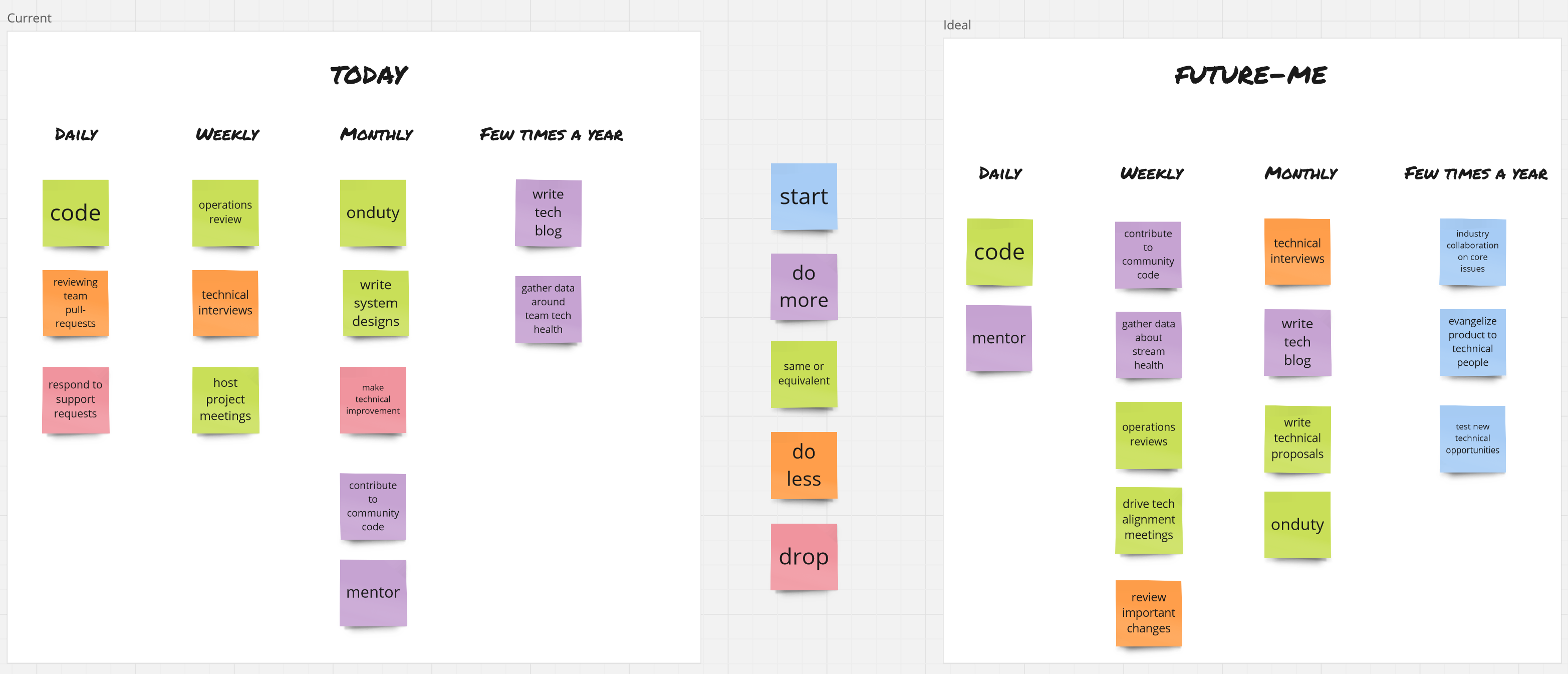Behaviour heatmap
This is how I think about getting better.
Who you are is what you do
Engineering levels/titles/positions are proxies for competence: a principal engineer title sets an expectation of the amount of value that this person will deliver. While proxies like this are valuable it's important remember that what really matters is the value a person actually delivers, and their ability to do so reliably. Actually delivering value boils down to the actions you choose to take i.e. your behaviour.
So getting better at our jobs is about realising that we can deliver more and figuring out how to modify your behaviour to enable you to do it. I think about this in the following steps:
- State the value you want to be able to deliver.
- Think of the key behaviours you think are needed to delivery this value.
- Write down your current behaviours.
- Work on closing the gap betweeh your current behaviours and your aspirational ones.
Changing behaviour is hard
I think it's important to break up aspirational improvement into chunks that you can focus on one at a time. Chunking by behaviour and having a clear representation of current behaviour vs aspirational behaviour gives what I think is a concrete view of how much change needs to happen. This view also gives a sense of which behaviours need the most work/attention which allows me to prioritize the ones I feel are the most important.
This exercise can be done visually, e.g. using colours to add more context. The result is what I call a behaviour heatmap and beyond using it for myself, I find it a useful when sharing my aspirations with mentors, managers, and peers. I've found this effective for helping them understand what I want to do and why.

Progress is incremental
Alongside the heatmap, there are a few core principles that help me stay on track:
- Pick one behaviour to work on at any given time. Don't overwhelm yourself with changes.
- Allow yourslef to fail. Your ideas of how to change your behaviour or even which behaviours are worth adopting may be wrong. You should to be open to letting things fail so that you can take another approach. These failures are what experience is made of - you should proactively try learn lessons from them.
- Set time-limits to changes. Life can get in the way of your changes. Try them for a set time so that you know when you should try another approach.
- Find mentors. Learning to do new things is much easier when you have support and sponsorship. It's expected that we find teachers when learning a sport or instrument; there's no reason for this to be any different in our professions.
Growth is the goal
To close, I think it's important to acknowledge that the goals you set for yourself are based on current knowledge, which is probably flawed. So I think goals should be loosley held. Their purpose is to give us a reason to do the work of improving ourselves. The real output of this is what we learn from the struggle to get better. The core tenet here, as one author would say, is "journey before destination".